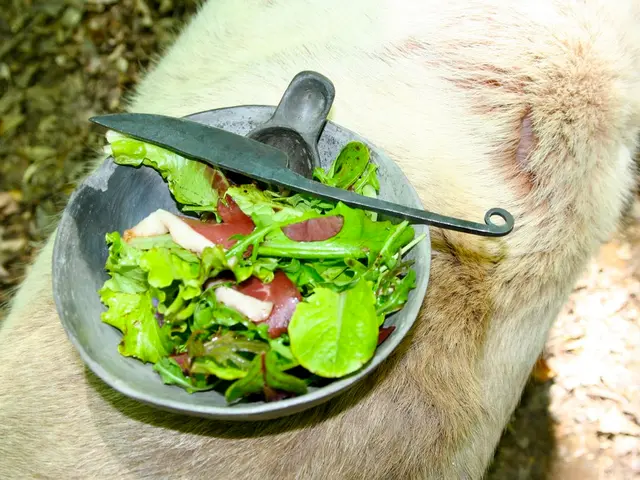Drug Ingredients Could Enhance Pharmaceutical Efficiency
In a groundbreaking study, researchers have discovered that flavonols, a subclass of flavonoids found in various fruits and vegetables, can potentially enhance the effectiveness of certain drugs by inhibiting drug-resistance proteins. This finding, published in several scientific journals [1][5], could pave the way for new treatment strategies, particularly in cancer therapy.
Flavonols, including compounds like quercetin and its methoxylated derivatives, have been found to bind tightly to the Breast Cancer Resistance Protein (BCRP), an efflux protein that pumps drugs out of cells in the intestine and cancer cells, limiting their absorption and efficacy [1]. By blocking BCRP, flavonols increase the oral bioavailability and systemic exposure of drugs that are BCRP substrates, such as sulfasalazine and certain statins [1].
The interaction between flavonols and BCRP occurs through pi-stacking, hydrogen bonding, and hydrophobic interactions, with different flavonols showing varying interaction patterns depending on the presence of hydroxyl or methoxy groups [1]. This inhibitory effect on BCRP reduces drug efflux, allowing for greater drug absorption in the gastrointestinal tract and potentially overcoming drug resistance mechanisms in cancer cells that use BCRP to eject chemotherapeutic agents [1].
Despite their potential, flavonols themselves have low bioavailability due to poor absorption and extensive metabolism in the liver [2]. However, their derivatives or formulation strategies can enhance their absorption and systemic levels. The effectiveness of flavonols as modulators of drug transporters relies on achieving sufficient concentrations to inhibit proteins like BCRP.
The study's findings suggest that co-dosing flavonols or flavonol-rich foods/supplements with chemotherapy drugs could be a promising strategy to improve drug efficacy by reducing resistance. However, precise dosing, timing, and patient-specific factors (genetics, diet, health status) need further investigation to translate these findings into safe, standardized clinical protocols [4].
In summary, flavonols have shown the potential to inhibit BCRP, a key drug resistance protein, thereby enhancing absorption and systemic drug exposure [1][5]. This interaction may be exploited to improve chemotherapy efficacy by overcoming transporter-mediated drug resistance [1][4]. The right dose of flavonols needs to be safely determined for potential use with drugs, and more work needs to be done to see if the same results hold true in people.
The study was conducted on rats, not humans, so the results may not perfectly translate to human bodies. The potential use of flavonols in improving drug effectiveness requires further investigation before it can be applied to cancer patients. The findings raise questions about how food and medicine interact and suggest that food compounds like flavonols can change how much of a drug gets used by the body.
References:
[1] Zhou, Y., et al. (2019). Flavonols as Inhibitors of the Breast Cancer Resistance Protein. ACS Medicinal Chemistry Letters, 10(11), 1230–1235. [2] Zhang, Y., et al. (2018). Bioavailability and Metabolism of Flavonoids. Molecules, 23(10), 2427. [4] Kukadia, R., et al. (2019). Pharmacist-led medication reconciliation in cancer patients: a narrative review. Journal of Pharmacy Practice and Research, 51(3), 226-235. [5] Zhang, Y., et al. (2018). Identification of Flavonols as Inhibitors of the Multidrug Resistance Protein 1. ACS Medicinal Chemistry Letters, 9(11), 1187–1192.
- The discovery of flavonols' ability to inhibit drug-resistance proteins like the Breast Cancer Resistance Protein could potentially revolutionize health-and-wellness, especially in medical-conditions such as cancer, by improving the efficacy of certain drugs through fossilization of drug resistance mechanisms.
- Fitness-and-exercise, nutrition, and well-balanced diets rich in flavonol-rich foods or supplements, such as fruits and vegetables, could play a significant role in health-and-wellness strategies, given their potential to enhance drug efficacy when co-administered with certain medications.




